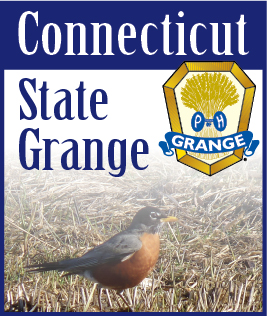| OCTOBER 19, 2011 -- Soon rural America may enjoy the same technological advances as its urban counterparts as the fight for rural broadband progresses each day.
On September 13, the National Grange participated in a briefing hosted by the Congressional Rural Caucus to discuss rural broadband build out.
Those presenting the briefing to Congressional staff included the National Grange, Western Telecommunications Alliance, Windstream, and USTelecom. Our National Grange Legislative Director Nicole Palya Wood, represented the Grange as the briefing’s only rural advocacy group.
Wood testified on behalf of the rural consumer, demonstrating the great need for broadband in rural areas.
A week later, a similar briefing was held by the Senate and the same parties arrived to participate once more.
Naturally, the topic for both briefings was America’s Broadband Connectivity Plan, the proposal sent to the Federal Communications Commission by six of the nation’s leading internet providers that seeks to bring broadband to 4 million Americans dwelling in rural areas by reforming the use of the Universal Service Fund and the Intercarrier Compensation system.
The National Grange filed comment to the FCC in support of the plan as well, and backed up those comments in the briefings on Capitol Hill by stating that, “at no other time in the USF reform talks with the FCC, have so many of the key players involved been not only at the same table, but united under a consensus agreement.”
One of the primary goals of the ABC proposal is to modernize the USF without increasing its size and reforming the ICC system to eventually phase down charges between companies for handling traffic, benefitting both company and consumer.
Modernizing the USF entails transitioning it over a 5-year period to focus exclusively on broadband development, giving virtually all Americans access to it, while also avoiding an increase in its $4.5 billion cost.
Specifically, the proposal would prioritize the USF to target broadband development in regions where there is no incentive for private companies to begin providing services.
Reforming the ICC would mean implementing, over a period of 5 to 8 years, a standard $0.0007 per minute intercarrier charge.
Several parties, but mostly state governments, are opposed to this standard intercarrier charge, claiming that they have long held the authority to set this rate as they see fit. In the past, this service fee has ranged from tenths of a penny all the way to 35 cents, depending on the company and where the call is being transferred. The ABC plan would help to standardize this system.
Those in favor of the ABC proposal have responded to the concerns of the states by clarifying that despite this loss of authority, the current proposal is the best means of ensuring that broadband reaches rural America and underserved populations.
According to Robert Mayer of USTelecom, state mandates can actually have unintended adverse consequences and “impede free-market forces by distorting economic signals, adding unnecessary costs for services.” Intrastate rates are one such unnecessary cost, as is the cost of being a “carrier of last resort,” another complaint by the states.
ABC would also eliminate these “carrier of last resort” obligations, which require that companies who receive funding from the Universal Service Fund provide phone service to any customer who requests it.
The proposal would eliminate such requirements, but it would also free those funds for the greater goal of bringing broadband to everyone more efficiently and effectively than those obligated companies ever could.
Nonetheless, the FCC has made clear that the proposal is just a starting point for broader discussions, but it is being considered which is a huge improvement from where the issue stood just months ago.
Each organization brings to the table a different perspective and agenda, as we all represent different groups and regions of our great nation.
As the discussion continues, more parties will arrive at the table to state their case as to whether or not this proposal should pass. Nonetheless, this proposal is a giant step in the right direction of fixing a broken system.
For questions or comments regarding the Grange’s stance on the ABC plan or any other Grange policy, please contact the National Grange Legislative Department at (202) 628-3507 ex. 107. |
